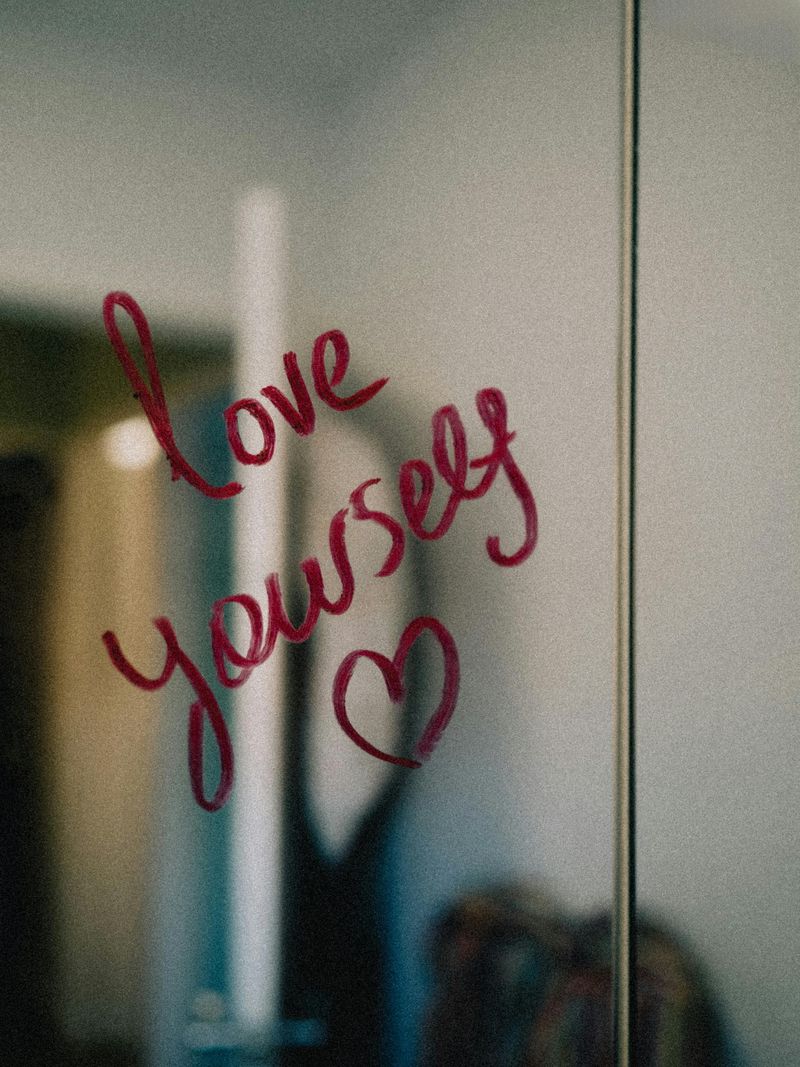Break ups hit us like a truck, leaving us with a heart full of pain and a mind full of questions.
The journey from heartbreak to healing isn’t a straight path – it twists, turns, and sometimes takes us backward before moving forward.
Whether you were together for months or years, the challenge of rebuilding your life without that special someone tests even the strongest souls.
1. Sleeping Alone Again
The empty space beside you feels like a canyon when you first face those nights alone. Your body misses the warmth and weight of another person, making sleep frustratingly elusive.
Your bedroom, once a sanctuary of shared whispers and comfort, transforms into a reminder of what’s missing. Many newly single people report rearranging furniture or changing bedding just to make the space feel different.
Your sleep patterns might get chaotic – too much, too little, or filled with dreams about your ex. Give yourself permission to struggle with this adjustment while creating new bedtime rituals that soothe rather than sadden.
2. Facing Shared Friend Groups
Friend circles suddenly feel like minefields when you’re navigating post-breakup social waters. Every gathering holds the potential for awkward encounters or having to explain your situation repeatedly.
Some friends might feel forced to choose sides, while others become unexpected messengers, sharing unwanted updates about your ex. The pressure to appear “fine” during these interactions adds another layer of exhaustion to your already depleted emotional energy.
Many people find themselves temporarily stepping back from certain friendships or events. This isn’t failure – it’s self-protection while you figure out new social boundaries that honor your healing process.
3. Battling Constant Reminders
The world becomes a minefield of memories after a breakup. That coffee shop where you had your first date. The song that played during your road trip. Even random scents can trigger a flood of emotions when you least expect it.
Your phone doesn’t help either. Photos, old text conversations, and shared playlists lurk in your digital spaces, waiting to ambush you during vulnerable moments. Some people delete everything immediately, while others can’t bear to erase these digital footprints just yet.
Finding the balance between honoring memories and protecting your heart takes time. Remember that being triggered doesn’t mean you’re moving backward – it’s your brain processing the change.
4. Rebuilding Your Identity
You might stare at the mirror wondering who you are without them. Relationships have a way of blending identities – shared hobbies, mutual friends, and future plans that shaped how you saw yourself.
Now you’re faced with rediscovering solo versions of everything. What music do YOU like? Which activities bring YOU joy? What dreams are truly YOURS? This identity crisis feels overwhelming but contains a hidden gift: the chance to reconnect with your authentic self.
Start small by revisiting old interests or exploring new ones without considering anyone else’s preferences. The person who emerges might surprise you – stronger, more self-aware, and ready for healthier connections in the future.
5. Managing Physical Withdrawal
Your body literally craves your ex – that’s not dramatic, it’s science. The sudden absence of physical touch, from passionate moments to simple hugs, triggers actual withdrawal symptoms in your brain chemistry.
Research shows heartbreak activates the same brain regions as physical pain. This explains the chest tightness, stomach knots, and exhaustion that follow you around. Your appetite might vanish or you might find yourself seeking comfort in food.
Moving your body helps tremendously during this phase. Exercise releases endorphins that counteract the chemical chaos in your system. Even gentle movement like walking or stretching sends signals to your nervous system that you’re taking care of yourself now.
6. Resisting the Urge to Check Up
Your thumb hovers over their social media profile for the hundredth time today. The temptation to peek into their life without you feels almost impossible to resist. Are they happy? Suffering? Moving on too quickly?
Digital snooping provides temporary relief but ultimately deepens your pain. Each post becomes a puzzle piece you try forcing into narratives about what went wrong or whether reconciliation is possible. Friends might hold you accountable with a “no contact” pact, but late-night willpower is notoriously weak.
Creating physical barriers helps – deleting apps, blocking profiles, or giving your phone to a friend during vulnerable moments. Remember that each time you resist checking, you’re building the muscle of emotional independence.
7. Handling Dating Pressure
“When are you getting back out there?” The question starts arriving before you’ve even processed what happened. Well-meaning friends suggest dating apps or offer to set you up, not understanding that your heart isn’t ready for new connections.
Society promotes the idea that finding someone new is the ultimate healing. This creates pressure to rush through grief instead of fully experiencing it. Some people use rebound relationships as bandages, only to face the original pain later.
Honor your timeline without apology. Healing isn’t measured by how quickly you create a new dating profile. The quiet space between relationships often provides the most growth, preparing you for healthier love when you’re genuinely ready.
8. Accepting Changed Future Plans
The future you imagined together shatters, leaving you to sweep up the pieces of vacations never taken, homes never shared, and milestones never reached. This invisible loss feels just as painful as losing what you actually had.
Maybe you discussed marriage, children, or growing old together. Now those dreams need reimagining without them. The timeline you planned for your life suddenly looks blank and uncertain.
Grieving these phantom futures is legitimate. Try creating a new vision board or journal about what’s possible now that wasn’t before. Freedom often hides behind the disappointment – the chance to design a life that truly fits who you’re becoming rather than who you were.
9. Watching Them Move On First
Few pains cut deeper than seeing your ex happy with someone new while you’re still struggling to smile through the day. Their apparent ease in moving forward can make you question everything – your worth, the relationship’s meaning, even your memories.
Social media makes this nearly impossible to avoid. A casual scroll turns devastating when you see them looking happier than they ever did with you. Friends might accidentally mention updates about their new life, not realizing each word feels like salt in your wound.
Remember that public personas rarely reflect reality. Their journey happens at its own pace, just as yours does. Their new beginning doesn’t erase what you shared or define your value in any way.
10. Trusting Again After Betrayal
When trust gets shattered, your heart develops security systems – walls, alarms, and triple-locked doors to protect against future pain. This self-preservation makes perfect sense but creates barriers to new connections.
Past betrayals replay in your mind when someone new shows interest. You scan for warning signs, analyze texts for hidden meanings, and prepare for disappointment even in promising situations. This hypervigilance is exhausting but feels safer than vulnerability.
Rebuilding trust happens gradually – first with yourself, then with others. Learning to trust your own judgment again after it led you into heartbreak takes courage. Each small risk that doesn’t end in pain helps your nervous system remember that not everyone will hurt you the same way.











